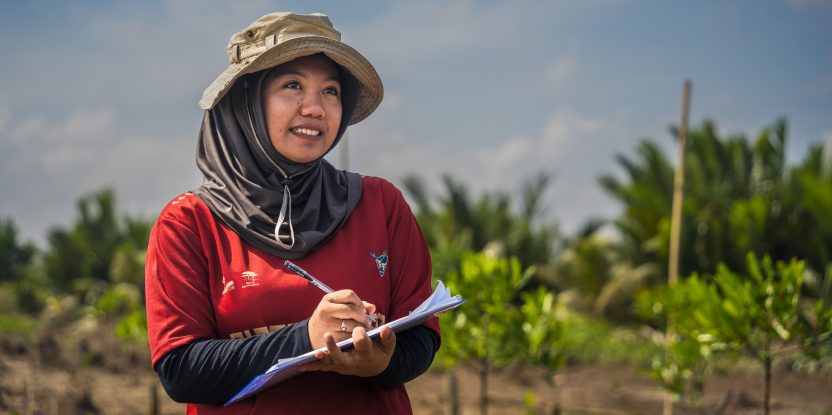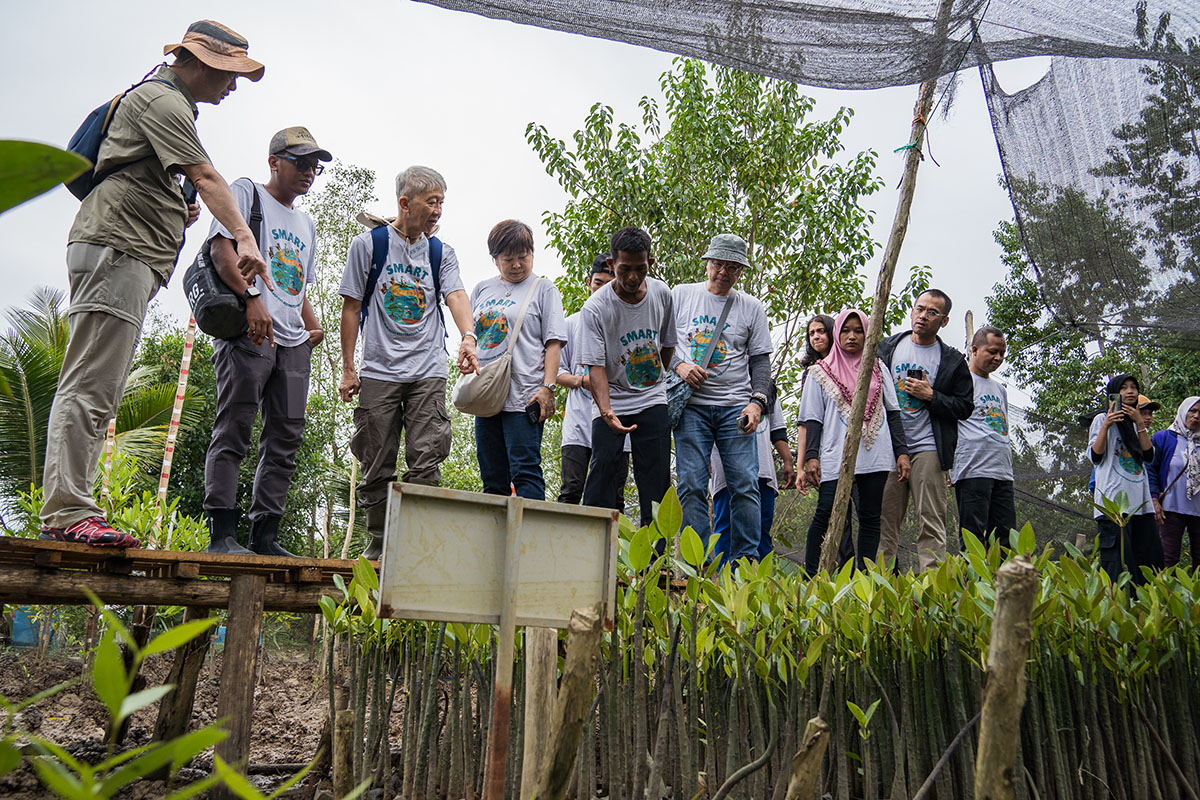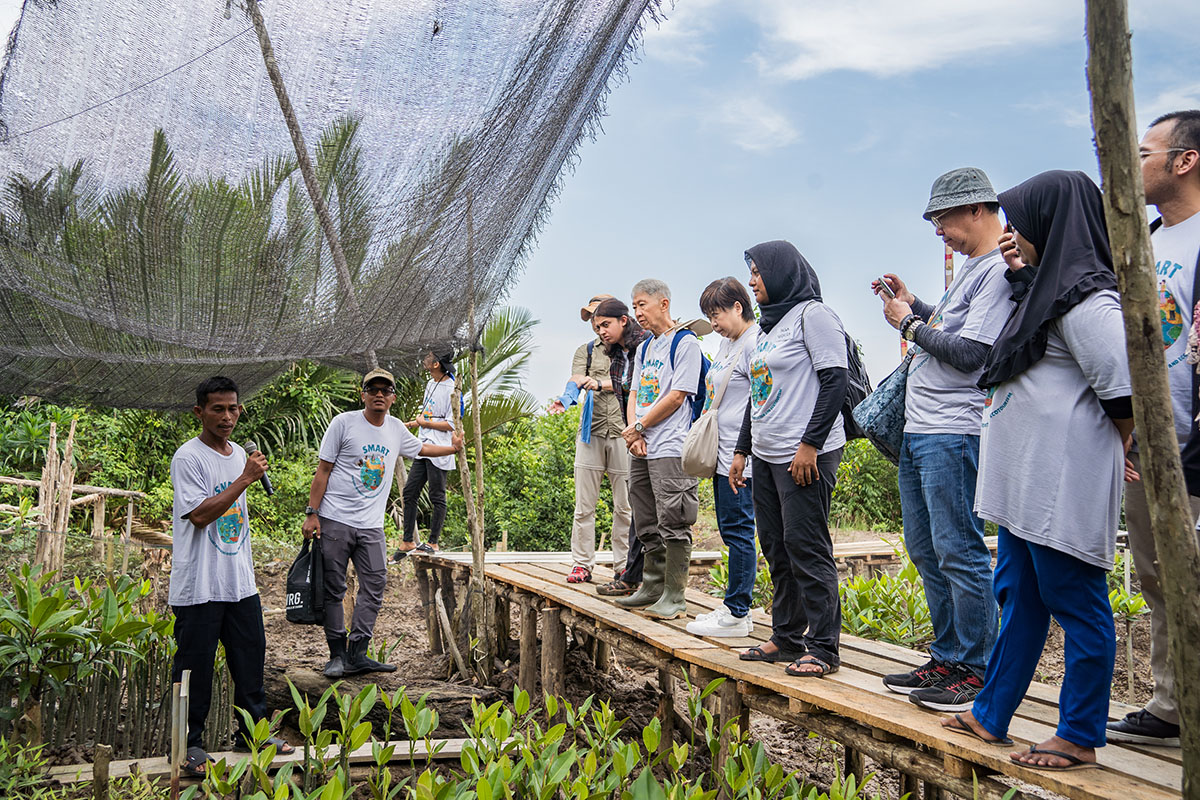
Indonesia has the world’s largest mangrove area—about a fifth of the planet’s. Sumatra, the second-largest Indonesian island by mangrove area, hosts 892,835 hectares of mangroves.
Half of South Sumatra’s remaining mangroves are concentrated in Banyuasin Regency, with significant mangrove clusters found in the Sungsang area, outside national parks. Sungsang’s mangroves face threats primarily from agricultural expansion, exacerbated by poverty among vulnerable coastal communities impacted by mangrove depletion.
Collaborating with Sriwijaya University and the South Sumatra Watershed Forum (Forum DAS Sumsel), the Center for International Forestry Research and World Agroforestry (CIFOR-ICRAF)—supported by the Singapore-based philanthropic organisation, Temasek Foundation—has launched the Sungsang Mangrove Restoration and Ecotourism (SMART) project. Spanning four years, the project aims to restore mangroves in Sungsang while economically empowering local communities. Activities include nursery development, mangrove restoration, and fostering small eco-enterprises through a business model canvas.
Through stakeholder engagement and community participation, the project seeks to enhance local capacity and promote sustainable mangrove restoration practices. It also advocates for local policies to safeguard Sungsang’s mangrove area.

Temasek Foundation delegates visit a mangrove nursery in Sungsang IV Village, Banyuasin, South Sumatra. Photo by Aris Sanjaya/CIFOR-ICRAF
On 4 July 2024, partners from Temasek Foundation visited Sungsang to monitor the project progress. Temasek Foundation Board Director Associate Professor Koo Tsai Kee emphasized the vital role of mangroves in global carbon sequestration.
“Mangroves are one of the most important trees for decarbonizing the world, and they grow abundantly in this region,” he said. “Unfortunately, we have not given them the appreciation they are due, and more mangrove restoration efforts can be activated. This project – a 3P partnership involving philanthropic, public and private sectors – is a small step in the right direction, which can demonstrate to all of us the benefits of doing so.”
During their visit, Temasek Foundation representatives toured around the mangrove nursery in Sungsang IV Village, where various mangrove species, including the rare Kandelia candel, are cultivated. This site serves as an eco-education tourism hub, attracting students and researchers from Sriwijaya University alongside recreational visitors.

Temasek Foundation delegates in Sungsang IV Village, Banyuasin, South Sumatra. Photo by Aris Sanjaya/CIFOR-ICRAF
A local community group manages the nursery and generates income by selling mangrove seedlings to companies engaged in mangrove planting. The SMART project’s tree adoption program has garnered interest from private enterprises committed to planting and maintaining mangrove seedlings.
Sonya Dyah Kusumadewi, a CIFOR-ICRAF research officer who oversees the SMART project, emphasized that the project’s business models are still in their early stages. “We hope that these can be scaled further and—of course—sustained,” she said. “If the community feels the benefits and builds a sense of ownership of these activities, then hopefully they can sustain them and benefit even more in the future.”
“We hope this project serves as a scalable model and inspires similar initiatives beyond South Sumatra,” she concluded, emphasizing the project’s potential to inform policymakers on the impactful role of community-based actions.
We want you to share Forests News content, which is licensed under Creative Commons Attribution-NonCommercial-ShareAlike 4.0 International (CC BY-NC-SA 4.0). This means you are free to redistribute our material for non-commercial purposes. All we ask is that you give Forests News appropriate credit and link to the original Forests News content, indicate if changes were made, and distribute your contributions under the same Creative Commons license. You must notify Forests News if you repost, reprint or reuse our materials by contacting forestsnews@cifor-icraf.org.